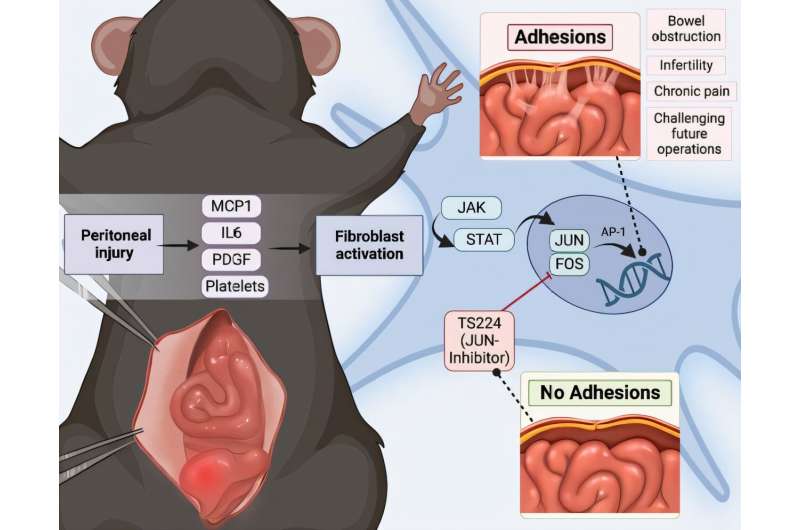The gel can be applied as a spray or a wash to the inside of the abdominal cavity immediately after surgery. Over a period of two weeks, the gel releases a small molecule, T-5224, that blocks the activation of adhesion-forming cells called fibroblasts without affecting normal wound healing.
A practical, simple way to prevent or reduce the formation of post-surgical abdominal adhesions in humans, which are currently unpreventable and largely untreatable, could save billions of dollars in health care costs each year and significantly reduce the incidences of chronic pain, infertility and bowel obstructions that arise when adhesions are severe, the researchers believe. Showing success in large animals such as pigs is a key step toward human clinical trials.
“Adhesions happen primarily when you injure or interact with the bowel during surgery, whether the surgery is open or laparoscopic,” said professor of surgery Michael Longaker, MD.

